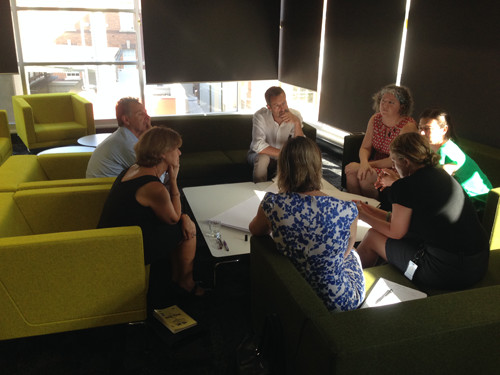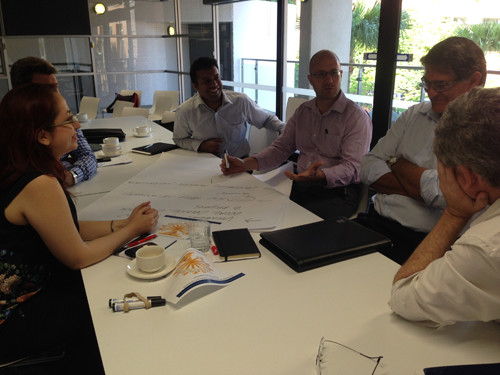Workshop – October 29, 2014
Breaching the Barriers to Effective Flood Risk Management
Based on comments and questions raised at previous seminars, this workshop was designed to identify the issues and opportunities that can make flood risk management more effective.
The purpose of the workshop was to:
- explore the cross-cultural perspectives to mobilising support for integrated floodplain planning and management using a Queensland and a Dutch comparison; to stimulate thinking and discussion on the topic;
- recognise the embedded values in the planning and risk management approaches observed within professional, political and social contexts for implementation a flood risk management plan – small panel discussion;
- identify the existing barriers to effective implementation of flood planning measures and then workshopping ways in which these barriers can be overcome – small groups will develop options and responses for each barrier.
Stephen Dredge
Managing Consultant Asia Pacific, MWH – Brisbane
In this presentation, Stephen identifies that overcoming the barriers for effective planning and implementation requires Queensland floodplain managers to pro-actively balance:
- community expectations with technical reality
- releasing information with communication strategy
- providing best practice without locally specific policy & direction from the State
- managing existing risks in contrast to future risks
- project needs with available funding
- legal and governance obligations to a Council organisations with the flood risks that face the local community
Stephen’s powerpoint presentation
Hans Oerlemans
Manager – Landscape Architecture, RPS – Perth
In this presentation, Hans identifies that the Dutch experience has evolved over the years, such that effective flood risk management is now based on:
- not a disaster driven approach but all solutions based on anticipated and forecasted climate change based scenarios
- an integrated joint approach to floods and water shortage
- a philosophy of “Move with water, not against it” and the use of solutions that “Build with nature”
- clear responsibilities for all entities
- national and local programs locked-in through laws and funds
- management that is done together as collaboration is essential
Hans’s powerpoint presentation
Workshop outcomes
Stimulated by the two guest speakers, a group discussion with input from panel guests Susanne Cooper – Principal Sustainability Strategist at Jacobs – David Corkill – Principal Planner, Buckley Vann – identified a range of issues that flood risk management in Queensland needs to consider.
Thanks to our workshop Partners – QUT
We would like to thank Michael Papageorgiou – then Planner in Residence and Mellini Sloan, Lecturer – in the School of Civil Engineering and Built Environment Science at QUT for co-organising and hosting the workshop at their Gardens Point campus.



